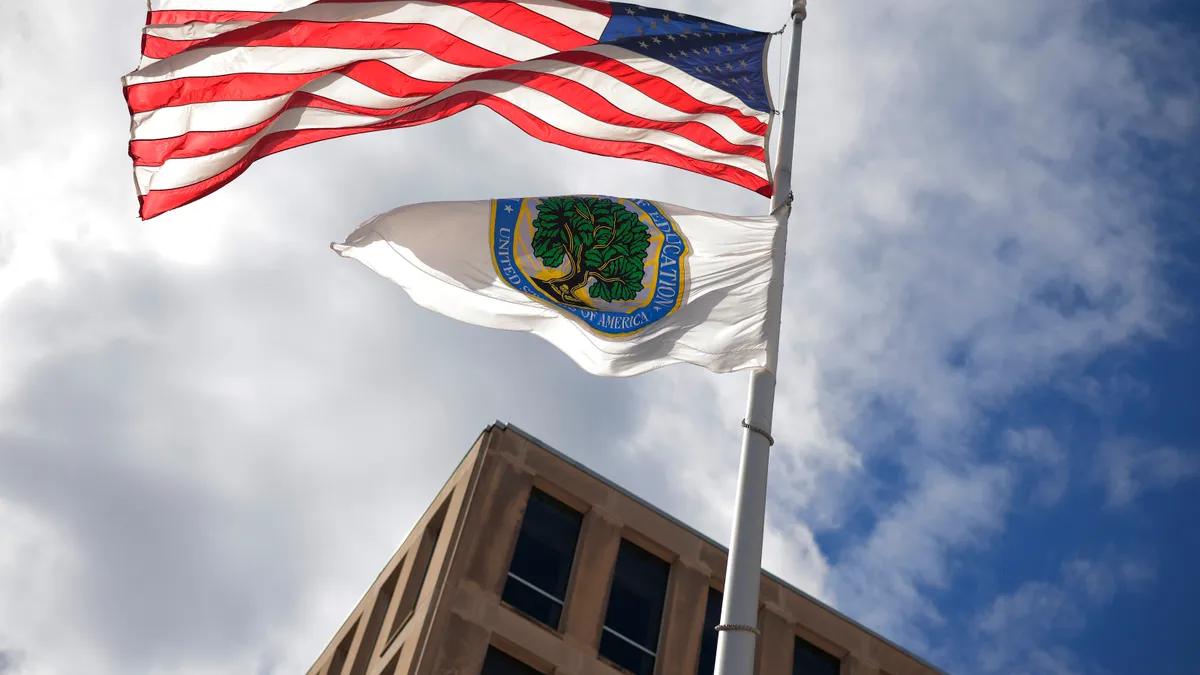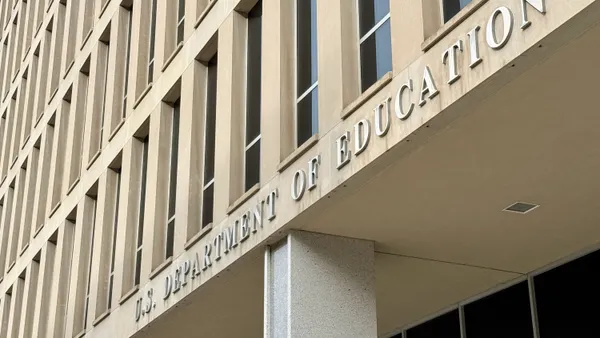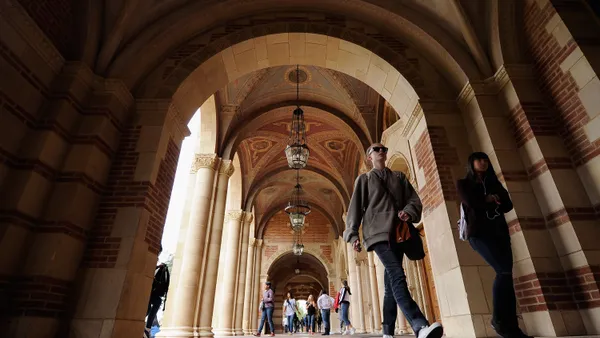Dive Brief:
- The U.S. Department of Education is asking a federal judge for an 18-month extension to decide borrower defense claims from students who were promised decisions by January — or automatic relief if their cases aren’t resolved by then.
- The nearly 200,000 borrowers still awaiting decisions are covered by a landmark 2022 settlement that promised automatic debt relief or timely decisions based on when borrowers filed claims and what institutions they attended.
- The Project on Predatory Student Lending, a nonprofit legal firm representing the borrowers, urged the judge overseeing the case to reject the Education Department’s request for an extension. “It is time for the Department to hold to its commitments and move this Settlement to its final phase,” the group said in a Nov. 21 court filing.
Dive Insight:
The settlement in the Sweet v. McMahon case stems from a class-action lawsuit filed during the first Trump administration that accused the Education Department of stonewalling decisions on applications for borrower defense to repayment, a federal program that provides debt relief to students defrauded by their colleges.
The settlement divided borrowers into three groups.
It granted automatic relief to the first group, which was composed of roughly 200,000 borrowers who attended one of the 151 colleges listed by the department. The list was dominated by for-profit institutions, including both large chains that had shuttered and still-operating colleges.
The second group was promised timely decisions, or automatic relief if the Education Department didn’t meet certain deadlines. The agency told the court earlier this year it had resolved many of those cases, and will provide another update in December.
And the last group — which is now facing a potential delay — is composed of the 207,000 people who filed over 251,000 borrower defense claims after the settlement had been struck but before it received final court approval.
The Biden administration's Education Department promised to make timely decisions on their cases — or else provide automatic relief to them by Jan. 28 of next year. Now, the department under President Donald Trump is requesting to move that deadline back to July 2027.
In a Nov. 6 court filing, the agency said it lacked the resources to quickly issue decisions on such a large pool of applications.
“The Department has not received the resources that are needed to adjudicate post-class applications — Congress repeatedly ignored requests for funding to increase staffing to the levels the Department deemed necessary to fully implement the settlement,” the agency said, adding that its Federal Student Aid office “has instead seen staffing dwindle at the time when resources for postclass adjudication are most needed.”
Trump signed an order to close the Education Department to the "maximum extent appropriate and permitted by law" and has asked Congress to reduce its funding.
The Education Department has cut its staff roughly in half under Trump and moved to outsource its programs to other federal agencies without first seeking congressional approval — a move some say could be a violation of the law.
The department said it is now adjudicating about 1,500 borrower defense applications each month for the final settlement group. As of Oct. 31, it had issued decisions on almost 54,000 of the final group’s applications.
It projected that roughly 193,000 borrower defense applications covered by the settlement would still lack decisions by the January deadline. Those borrowers’ outstanding loan balances total $11.8 billion, the Education Department said in court documents. It also said about half of the group’s borrower defense claims have so far been denied.
In a statement Wednesday, Under Secretary of Education Nicholas Kent the Trump administration is requesting more time so taxpayers aren’t “burdened with discharges for ineligible borrowers.”
“Although the Department has complied with the Court’s deadlines in good faith, the upcoming January deadline is unreasonable,” Kent said. “Without adequate time to review each outstanding borrower defense case, taxpayers could be forced to shoulder $6 billion in windfall discharges for ineligible borrowers, based on the Department’s current adjudication patterns.”
In response to the Education Department’s request, lawyers for the borrowers slammed the department’s request.
“Less than 12 weeks before the deadline, the Department reveals that not only is it behind schedule to meet that deadline, it never had a prayer of meeting the deadline," they said. "Out of more than 251,000 Post-Class applications, it has adjudicated fewer than 54,000 — barely one-fifth.”















